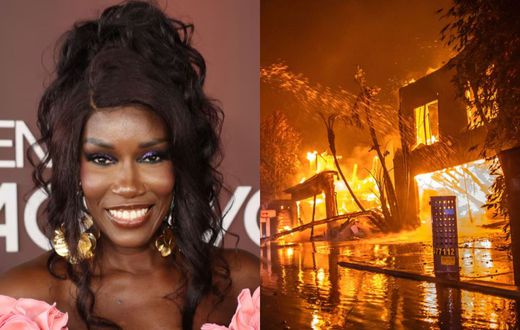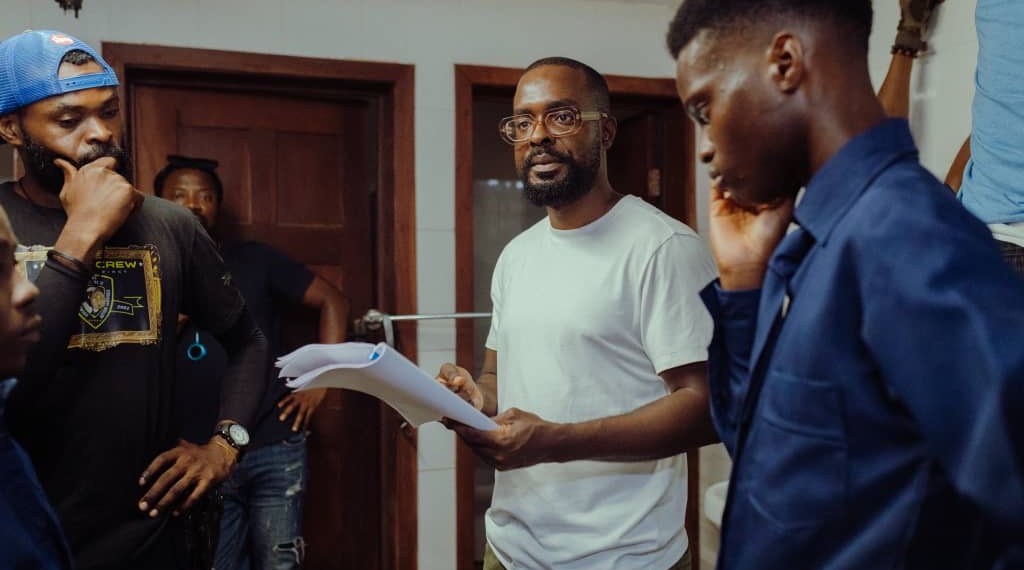Well-known Ghanaian entrepreneur and internationally recognized marketing leader, Bozoma Saint John, has taken to social media to announce a heartbreaking personal tragedy. Saint John, affectionately known as @badassboz on Instagram and revered across tech and business circles from Accra to Silicon Valley, revealed that her beloved Los Angeles residence was destroyed in the ongoing California wildfires. This disaster, which has displaced families across the state and prompted global expressions of solidarity, underscores the vulnerability shared by communities from the United States to West Africa, where issues of climate change, housing, and resilience also resonate deeply.
In a touching Instagram update, Saint John reflected on the unique significance of her home, making it clear this was far more than property or investment. According to her statement, the residence represented a sanctuary built in the aftermath of profound personal challenges. As a widowed Black woman navigating adversity in an industry—tech and corporate marketing—often noted for its lack of diversity, Saint John described the house as an enduring symbol of love, healing, and hard-won success. Her words resonated with many Nigerians and Ghanaians, especially women and professionals who see in her journey a mirror of their own aspirations and struggles.
“This is the house I worked in blood, sweat, and tears for,” she wrote. “It is gone. This is an unimaginable loss.”
Saint John’s loss has ignited a wave of support from a global community that admires her resilience and authenticity. The house, filled with years of memories and milestones, was reportedly reduced to rubble within hours—a stark reminder of nature’s relentless power. Saint John thanked her friends, family, and professional circle for their outpouring of support, specifically requesting prayers for herself and her daughter, Lael, as they find ways to rebuild emotionally and materially. Her open vulnerability has struck a chord with many in West Africa, where families also know the pain of losing homes to disasters such as floods or market fires, and where community support often becomes the first line of comfort and hope.

The Real Housewives of Beverly Hills star
Bozoma Saint John has carved an indelible mark within the global sphere, especially as a trailblazer for women and people of African descent in top multinational roles. Her career trajectory—marked by pioneering leadership at Apple, Uber, PepsiCo, and Netflix—not only inspires but illustrates the pathways available to Africans who dream beyond borders. However, her recent experience serves as a stark reminder that no level of professional achievement shields anyone from life’s unpredictability or personal grief.
Nigerian business analyst Tunde Olawale reflected on the news: “Bozoma’s story shows that Africans in the diaspora face the same vulnerabilities and heartbreaks as those at home. But her transparency is a lesson in grace and resilience—something every professional, in Lagos or Accra, can relate to.”
According to reports from the Los Angeles County Fire Department and Los Angeles Times, the wildfires ripping through California this season have already displaced thousands of residents, destroyed hundreds of homes, and prompted mass evacuations. Climate experts, including those at the African Centre for Climate and Environmental Policy Studies, have highlighted similarities between these blazes and fire outbreaks witnessed across parts of Nigeria, Ghana, and other West African countries, especially during dry seasons.
“Urban and rural African communities are not immune to such disasters, and the importance of robust urban planning and emergency response has never been greater,” noted environmentalist Dr. Nana Kwesi Boateng. In 2023 alone, the National Emergency Management Agency (NEMA) in Nigeria reported over 1,400 fire incidents, most sparked by electrical faults or bush burning—underscoring the need for improved safety standards and public awareness.
Broader Lessons for Nigerians and West Africans: Resilience Amidst Loss
The loss of a home is universally traumatic, but it often spurs crucial conversations about recovery, mental health, and the essence of community. Nigerian psychologist, Dr. Funke Adebayo, pointed out that “rebuilding after tragedy requires not just financial resources, but emotional grit and a support network—a truth that translates across continents.”
Disasters like these remind us of the importance of disaster preparedness, insurance, and mental health support. Traditionally, extended families and neighbours rally to help victims in Nigerian and Ghanaian societies, a practice that remains vital even as modern insurance and government interventions slowly gain more ground.
- Have you considered safeguarding your property against fire and other disasters?
- Are communal support systems still relevant in today’s urban African centres?
- What more can authorities do to prevent and respond to emergencies?
Role Models, Representation, and the Power of Sharing In the Wake of Tragedy
For many West Africans, especially young women, Bozoma Saint John’s journey stands as a beacon of possibility—proof that global success is within reach. Her openness about her loss, however, brings needed focus to the realities behind curated social media images: that behind the public achievements are private struggles. From Lagos entrepreneurs to Abuja professionals and Accra creatives, many have expressed empathy and solidarity, sharing their own stories of building through adversity in hopes of inspiring others.
As the California wildfires continue to claim homes and livelihoods, the global African community is reminded of the fragility of life and property but also inspired by stories of courage, transparency, and hope. Experts believe that solidarity—be it via online communities or direct action—remains crucial in navigating such storms, literally and figuratively.
Bozoma Saint John’s loss is a solemn reminder: success does not exempt anyone from pain, but openness in the face of loss can foster empathy and spark change on both sides of the Atlantic.
Local Impact and Global Connections
As the effects of climate change intensify, so too does the frequency of destructive events like wildfires, floods, and storms. In Nigeria, for instance, Lagos and Port Harcourt have experienced increasing cases of severe weather, and market fires regularly disrupt the livelihoods of thousands. Policymakers and citizens across Africa are grappling with how to improve early warning systems, invest in resilient infrastructure, and support those whose lives are upended by disaster.
The international concern and local empathy expressed for Bozoma Saint John echo broader trends—Africans are no longer passive recipients of global tragedies; they are active participants in conversations about vulnerability, adaptation, and recovery. Joint efforts, including diaspora fundraising drives, corporate social responsibility from businesses, and community-driven rebuilding projects, are examples of tangible solutions coming to the forefront.
What’s Next for Bozoma — And For Us?
While rebuilding may take time, Bozoma’s resilience and candour offer lessons on perseverance in the face of loss. Her story is already sparking discussions across African social media and news platforms about hope, support, and personal recovery. Each loss—from a home in Los Angeles to a business in Abule Egba—reminds us of our shared humanity, and the power of community when tragedy strikes.
How do Nigerians and Ghanaians see the role of personal sharing, mutual aid, and insurance in dealing with disaster? And what more can be done to make our cities and homes safer for all?
If you want to share or sell your story for wider publication, reach out in confidence at story@nowahalazone.com.
For general support, email us at support@nowahalazone.com.
Stay updated and join our vibrant community on
Facebook,
X (Twitter), and
Instagram.
What’s your view? Comment below, follow us for the latest updates, and let’s build a more supportive, resilient African community—together!









